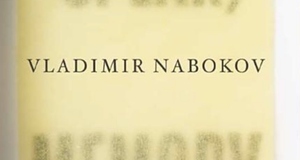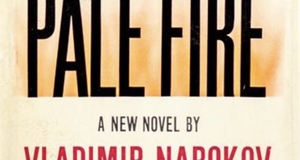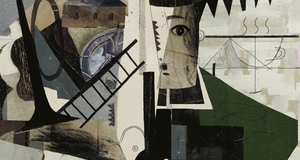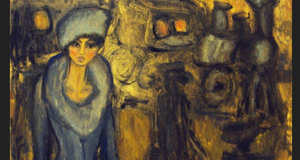Gender and Power in Vladimir Nabokov's Lolita
By
2011, Vol. 3 No. 05 | pg. 1/1
KEYWORDS:
In Vladimir Nabokov's Lolita, the overriding force of the narrator, Humbert Humbert, is his need to prove himself master of everything: other people, his own desires, fate, and language itself. Time and time again through Lolita we see Humbert’s most extreme actions and emotions not as a result of his physical desires but rather his psychological need to win, to possess, and to control. Gender relations are quite simple for him: women are to be possessed, and men should compete for the possession of women. At times Humbert competes to prove his superiority in other ways, for instance tricking psychologists into thinking he is gay. And he even refers to his own ‘exotic’ sexuality as evidence of extremely refined taste, a palate superior to the average man’s. By the end of the book we see that Humbert’s hunger for domination overpowers the peculiar particularities of his desires and is the real cause of his woes. Humbert wastes no time letting us know of his potency: “I was, and still am, despite mes malheurs, an exceptionally handsome male… I could attain any adult female I chose” (25). He reminds us of this fact numerous times. He uses it to explain how he is able to beat the competition by seducing any woman he wants, though he may want them for unconventional reasons. He marries Valeria for unconventional reasons: “It occurred to me that…all the conventions of marriage…might help me, if not to purge myself of my degrading and dangerous desires, at least to keep them under pacific control” (24). He chooses her in particular because of “the imitation she gave of a little girl” (25). And he shortly admits that she grew older, fatter, hairier, and he stopped having sex with her—there is no doubting his lack of respect. Two pages are spent mocking Valeria and their attempt at marriage before he explodes in fury at the fact that she is having an affair and wants a divorce. He even addresses the peculiar reasoning of his anger: “A mounting fury was suffocating me—not because I had any particular fondness for that figure of fun, Mme Humbert, but because matters of legal and illegal conjunction were for me alone to decide, and here she was, Valeria, the comedy wife, brazenly preparing to dispose in her own way of my comfort and fate. I demanded her lover’s name.” p.28 From this passage we may discern two reasons for Humbert’s anger: first, that a woman, whom he believed to be in his possession and control, could by her own independent actions so tremendously impact his “comfort and fate,” and second, that another man should so easily intrude on his territory. In essence, he is furious because he has been beaten by both of them and made to look ridiculous through his ignorance. It does not sit well with his self image, and he cannot let this state of affairs last: “But no matter. I had my revenge in due time” (30). And then we hear this bizarre, wonderful story about how the desperately destitute pair were forced to live in a science experiment on “human and racial reactions to a diet of bananas and dates in a constant position on all fours” (30) and how Valeria died in childbirth. Regardless of whether you believe this story (the results of the experiment have conveniently remained unpublished and I am skeptical as to Humbert’s ability to randomly find this out from “a man from Pasadena”), it settles the affair for Humbert—what better revenge can there be than the most bizarre, hilarious, degrading four years of torture one can possibly imagine?1 Humbert is able to move on (segueing quickly into the first reference to Quilty and the move to America) only because he knows he has beaten the competition to a bloody pulp. Charlotte Haze enters the scene after Valeria. Rather, several years, several mental institutions, a trip to the North Pole and one coincidental house fire after Valeria, but Humbert by no means dwells on these events. Anyhow, Charlotte is clearly used by Humbert as a means of getting to Lolita: “I imagined…all the casual caresses her mother’s husband would be able to lavish on his Lolita…all my troubles would be expelled, I would be a healthy man” (70). And when he realizes this would be impossible because of her plans to send the girl to boarding school, he begins somewhat passively planning her murder. He can’t pull it off, but he realizes that controlling Charlotte would bring him one step closer to Lolita. And it is the mere fact that he cannot control Charlotte that he finds almost as damaging as her plans to export the girl. He notes that with Valeria, “I could make her change her mind instantly; but anything of the sort in regard to Charlotte was unthinkable. Bland American Charlotte frightened me. My lighthearted dream of controlling her through her passion for me was all wrong” (83). The fact that she is out of his control frightens him! When he does bring her to her knees in submission,2 he says the “little incident filled me with considerable elation” (91). Clearly his ability to manipulate Charlotte is an absolute requisite of the relationship. The other noteworthy episode before he leaves Ramsdale is with John and Jean Farlow. The Farlows are the closest to friends that Humbert makes in the novel, and they are the only Americans described in detail without much ridicule. John Farlow is a capable, intelligent man who is quiet by definition: “quiet, quietly athletic, quietly successful” (78). His wife Jean is clearly quite attractive (though not to Humbert, of course), and she is the only character, out of many in the novel who produce art of various kinds, whose work Humbert praises.3 But even though he seems to respect the Farlows, he declares his sexual superiority. The most comically notable example of this occurs shortly after Charlotte’s death, when he associates their earnest and empathetic concern with sexual weakness:
This little aside has almost nothing to do with the plot of the novel. It is merely Humbert asserting that for one thing, his virile persuasions are felt by even the most respectable women with stable marriages and healthy sex lives,4 and for another, that John Farlow’s quiet and generous nature is a sign of his submission to the more sexually powerful Humbert. Humbert wants us to know both of these because it is important to him to be the alpha male, to know that he can possess the woman and defeat the man. Whether or not this is the case (though it seems to be, given Jean’s attempt at a passionate kiss), we have heard it before, so this episode strikes of Humbert gloating. The problem with the Farlows which necessitates Humbert’s escape from Ramsdale is that they cannot be controlled:
Humbert knows that the Farlows are genuinely interested in people’s well-being, unlike almost all the other characters with their selfish desires. Therefore he cannot control them, and just as with “Bland American Charlotte,” this frightens him. He knows that given independent support system, Lolita cannot be controlled, so he has to leave. In the simplest terms, Lolita can be described as the two-part story of Humbert Humbert’s relationship with the girl. In Part I he takes her, and in Part II he loses her. Notice that this has nothing to do with Humbert’s sins, his physical needs, his personal history, or his reflection upon his life. Those are all just necessary components to the story of how he happens to desire and obtain a nymphet and subsequently how she escapes his grasp. Part I ends with a chilling exposition of Lolita’s situation: “In the middle of the night she came sobbing into [my room], and we made it up very gently. You see, she had absolutely nowhere else to go” (142). This is the climax of Humbert’s possession of Lolita: she has no other option but him, and has not begun to realize the power (slavery, he himself calls it) that she holds over him. But of course she quickly grows to hate Humbert even while he revels in his possession of the nymphet. The defining factor of Humbert’s sexual relations with Lolita is not the sex. He makes no attempt to deny enjoying the sex and having certain techniques, positions, and habits he enjoys especially, but each sexual encounter is foremost described in terms of the power dynamic. One scene that sticks out as the most ‘friendly’ is of the pair having sex while Lolita reads the comics, and Humbert admits to casually appreciating them as well. But then there is this horrific episode:
And who could forget:
The most striking, import, and focused aspects of these scenes are the descriptions of how much and what kind of power each character has. Lolita has some kind of sexual power that holds Humbert in thrall, and he seems to have some kind of need to subjugate himself to her. Perhaps he is just terribly lonely and misses his mother. Perhaps this is his way expressing true love. Regardless, the paradise that he has chosen for himself is defined by a very delicate balance of power—the only power struggle in the book that he is willing to lose.5 The time he does not spend worrying about Lolita’s possible escape (either to another boy or man or with the eventual onset of puberty) or having sex with her, a very small amount of time, is spent mocking the people, places, and culture he sees. In one brilliant segment we see all three:
Humbert is oh-so-above all of it. But most notable is the fact that he has to point it out—isn’t the fact that he sees himself as competing with a gawky teenager for 12-year-old Lolita’s love just as creepy, or even more creepy, than wanting her love in the first place? There is no doubt that he enjoys Lolita sexually, but comparable to his sexual pleasure, and far more expounded upon in this section of the novel, is the pleasure Humbert derives from ‘beating’ society. He has to ridicule every other male he comes across, he has to ridicule society for its taste in art and entertainment, and he has to ridicule Americans for letting him so easily get away with a crime so disgusting. He has to have us know that with his great intellect he has penetrated every subject to the core, understood it completely, and found it wanting. This is precisely what drives him nuts about the loss of Lolita and what drives him to murder Clare Quilty. Quilty goes to every effort to show Humbert that they are alike, but that he is just a bit better. Humbert remembers that when he came to terms with the loss of Lolita, “To myself I whispered that I still had my gun, and was still a free man—free to trace the fugitive, free to destroy my brother” (247). This point is hammered home when Humbert interrogates the nurse-accomplice, attempting to bribe her: “’He is your brother,’ she whispered at last. I plucked the bill out of her moon-cold hand, and spitting out a French curse turned and ran away” (249). Humbert is furious here because Quilty has understood the predicament so well as to mock Humbert with his own terms. After this episode he backtracks across the country hunting for Quilty, only to find that the playwright has deliberately left him clues. Literary clues. Quilty is clearly telling Humbert that they are the same type of man playing the same type of game, and Quilty gloats in his victory. This hits Humbert very hard: In a single paragraph on page 251 he notes that Quilty’s literary taunts “caused me especially painful palpitations” and describes them as “horribly cruel.” And Quilty’s coup de grace, “Ted Hunter, Cane, NH,” is simply called “the most penetrating bodkin.” The several names that Humbert finds that indicate Lolita’s betrayal of him do not bother him nearly as much as Quilty’s mockery. Humbert reasons the murder of Quilty very succinctly: “because of all you did/ because of all I did not/ you have to die” (300). There is no other option. Every other adult in the book whom he cannot control he has escaped. However, he cannot escape the shame of being beaten by Quilty. Even though he knows that he can never get Lolita back, and even though Quilty is an aging, drug-addicted pervert who can no longer even enjoy his perversions due to total impotency, Humbert still has to kill him. The irony is that Quilty offers him everything that Humbert could rationally want: exotic sexual favors, money, a house, a future, even a friend—Quilty begs him, saying “we are men of the world, in everything—sex, free verse, marksmanship.” Essentially Quilty bargains with an opportunity to end the frustration, loneliness, and obsession that defines Humberts pedaphiliac life. In a way he offers his own identity as a man nearly identical yet superior to Humbert, but nothing can assuage the fact that Quilty’s existence is evidence of Humbert’s failure as a lover, father, captor, and competitor. It is quite notable that Humbert’s obsessive desire for control ends with his murder of Quilty. For he knows that he has essentially killed himself: Quilty is not only his brother, he is a mirror image of Humbert. The difference is that Quilty allows us to see Humbert without the benefit of the pathos generated in the autobiography. By seeing Quilty so clearly in the third person, Humbert understands how pathetic and hopeless a man he is. This coupled with the fact that he has killed possibly the only man with whom he could truly share himself brings Humbert down. By all the standards he himself has set during the book, Humbert is no longer a man by the end6—he has lost all means to control, and thus lost his will to live. Humbert only ever has one totally satisfying sexually experience: secretly masturbating with Lolita in his lap. And what an orgasm it is!
And he is right, there is in that moment a state of security and confidence not found elsewhere in his life. His relationship with Valeria is plagued my numerous issues. His later relationship with Lolita is constantly endangered by fear of discovery, her unwillingness to cooperate, and his insecurities. One would think that in this instant he gets to have his cake and eat it too: he gets tremendous sexual pleasure out of an act of playful, mutual affection that does his object no harm. So the obvious question is, if this is sexual fulfillment, why does Humbert continue his sexual relationship with Lolita (or anyone else before or after) even when he knows it cannot be that satisfying; moreover, why does he continue pursuing these women when he knows that his mental state and sexual passions are being broken down by progressively more destructive relationships?7 The answer is control. He has to possess what he wants, and he has to win everything: he must defeat the sexual prowess of other men, of course. He has to win the heart of any woman he wants. He has to win (with literary prowess) the prejudiced minds of the jury. But all of these are extensions of Humbert’s unconquerable desire to win over his own fate. Seeing a world of sudden, meaningless violence,8 he fights desperately to control the world around him, and if he is able to do so, it is worth it:
Like John Milton’s Satan,9 Humbert believes his self-inflicted torment to be justified if it is a manifestation of his own will. Clearly the particular physical sins are incidental to his need to be master of his domain. ReferencesNabokov, Vladimir Vladimirovich. Lolita. New York: G. P. Putnam's Sons, 1958. Print. Endnotes1.) I remind the reader that the Humbert and Valeria’s marriage lasted four years as well, 1935-39. In another parallel, the forward notes that ‘Dolly Schiller’ also died in childbirth, also after four years of hard living subsequent to her leaving Humbert. Given Humbert’s ignorance of Dolly’s death, this is likely a little treat from Nabokov himself. 2.) In fact calls him “her ruler and her god” (91). This is an odd episode in light of her previous mentioning of the necessity of his being Christian. Charlotte’s theatricality in light of Humbert’s continual disdain for her ‘Bland American’ ways is an amusing idiosyncrasy; I suspect some of her language is exaggerated by Humbert to ridicule her as a way of hiding his guilt. This also is a strike at religion: Charlotte has previously told Humbert that they can only be married if he accepts Christianity. Perhaps Humbert’s disdain for religion is in part because he views it as a competitor for control of those around him, in addition to his general dislike of ceremony and theatricality. 3.) Valeria paints ‘cubistic trash,’ Charlotte is mocked for her turgid love letter and hackneyed attempts at theatrical displays and French endearments, and even Quilty’s work is easily dismissed despite his fame. Furthermore, Humbert has little respect for his own work. This case is interesting in that he does not actively praise Jean’s work but instead recalls it: “vividly do I remember praising, over cocktails, the picture she had made” (79). Given his other interactions with Jean and his lack of hesitance in mocking and dismissing creative attempts, this recollection betrays some genuine respect for the woman. 4.) Humbert hints on page 98 that the Farlows may have had sex in his bedroom; Jean makes several somewhat sexual remarks. If there is anything abnormal in her sex life, Humbert seems to think it would be the fault of John’s indifference. 5.) This adds a certain gravity to Humbert’s assertion that he loves Lolita. However, that is neither here nor there, as by the time he gives her money and leaves (or allows her to leave), his focus is on Quilty. 6.) By which I mean he is over the hill. He has no interest in being so intensely masculine, no reason to seduce women, and his murder of Quilty (and the accompanying poem) has shown him the futility of his work. He knows himself to be more ridiculous than the people he has spent the book ridiculing. 7.) By which I mean that in the case of Lolita and Rita, he knows himself to be growing increasingly neurotic and obsessive. In the former case he is aware of his own sadism to some extent and becomes disgustingly paranoid, and in the latter though he may be helping Rita, he admits his life is hollow, worthless, and confused. 8.) I am referring to the numerous comically sudden deaths in the novel as well as the general role of coincidences and violence. He has clearly not led a stable life (picnic, lightning, world wars, north pole), and needs to compensate for the randomness of fate with his own will. 9.) I think this passage is an indirect reference to Paradise Lost, but even if it is not the parallel with Christian theology it has similar implications. Suggested Reading from Inquiries Journal
Inquiries Journal provides undergraduate and graduate students around the world a platform for the wide dissemination of academic work over a range of core disciplines. Representing the work of students from hundreds of institutions around the globe, Inquiries Journal's large database of academic articles is completely free. Learn more | Blog | Submit Latest in Literature |


















